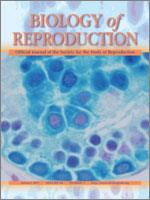Thyronines are essential for the development of the male reproductive system, including the prostate gland. Metabolically active 3,5,3′ triiodothyronine (T3) is generated mainly by the extrathyroidal, enzymatic 5′deiodination of the prohormone thyroxine (T4), which is catalyzed by deiodinases type 1 (D1) and type 2 (D2). Prostate D1 activity is highly expressed during puberty and declines with age, but continuous, long-term sexual activity prevents this reduction. The aims of this study were to characterize the changes in prostatic D1 activity in response to consecutive ejaculations and to determine whether sympathetic input participates in the local T3 generation (D1 activity). D1 activity was analyzed in prostates of sexually experienced, 4-mo-old male rats after one to five ejaculations. D1 activity, T3 concentrations, and the T3-dependent gene ornithine decarboxylase (Odc) were measured after the fourth ejaculation in prostates of intact, sham, and sympathectomized (Smpx, hypogastric nerve) rats. D1 activity was evaluated by the radio-iodine-release method; T3 was measured by radioimmunoassay and Odc expression by real-time PCR. Data showed a gradual increase of prostate D1 activity in response to consecutive ejaculations. The highest activity was found after the fourth ejaculation, and it decreased after the fifth. The increase of prostate D1 activity after ejaculation was blocked in Smpx males as compared to intact or sham animals. The changes in D1 activity correlate with prostatic T3 concentrations and Odc expression. Circulating levels of T3 were not affected by consecutive ejaculations or by Smpx. These findings indicate that the postejaculatory increase in prostatic generation of T3 depends on sympathetic input.
How to translate text using browser tools
1 September 2010
Postejaculatory Increase of Prostatic Triiodothyronine (T3) Depends on Sympathetic Innervation in the Rat
Evangelina Delgado-Gonzalez,
Carmen Aceves,
Brenda Anguiano
ACCESS THE FULL ARTICLE

Biology of Reproduction
Vol. 84 • No. 1
January 2011
Vol. 84 • No. 1
January 2011
deiodinase
ejaculation
hypogastric nerve
male reproductive tract
male sexual function
noradrenaline
prostate




